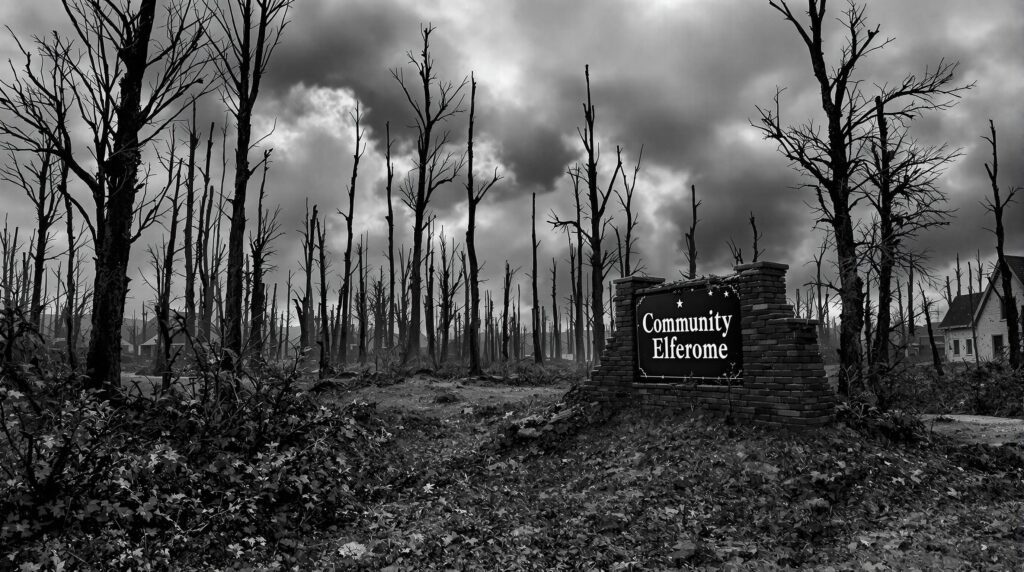A Disaster Born of Utility Negligence
When flames engulfed Los Angeles’ Pacific Palisades and Altadena neighborhoods in January, the devastation left an indelible scar on residents, the community’s infrastructure, and the city’s collective psyche. But as the ashes settled, troubling questions arose: What started this catastrophic blaze, and could proactive city management have prevented the loss of life and property?
A new lawsuit filed by affected Los Angeles residents places responsibility directly at the doorstep of city authorities. Central to the claims is the assertion that municipal power lines—operated by the Los Angeles Department of Water and Power (LADWP)—actually ignited the blaze, contradicting the agency’s previous denial. LADWP initially defended itself by asserting the power lines implicated had been disconnected from the grid for five years. However, city attorneys later admitted the lines were actually energized at the time the fire erupted, adding disturbing credibility to the residents’ claims.
Financial Expediency Over Public Safety
The lawsuit not only highlights potential misinformation about power line maintenance but also alleges a series of deliberate cost-cutting measures that severely hampered firefighting efforts. Specifically, residents report that two major reservoirs critical to battling fires—Santa Ynez and Chautauqua—were deliberately drained to sidestep expensive maintenance obligations. This left firefighters critically under-resourced at the very moment they most needed robust support.
Such actions raise a crucial, broader question for communities ranging beyond this immediate disaster: Are city management decisions too narrowly focused on short-term financial savings at the expense of essential public safety infrastructure? Profit-driven choices involving critical infrastructure don’t just impact the moment—they create long-lasting vulnerabilities that can dramatically compound crises. We only have to recall recent wildfires across California to see that skimping on preventative measures in pursuit of cost-cutting frequently results in exponential losses: financially, environmentally, and tragically, in human life.
“These weren’t just lines on a budget spreadsheet; they were lifelines for our community’s safety.”
Real Lives, Real Losses, and Lingering Trauma
When disasters hit a community, numbers alone rarely convey the reality. Yet, in the case of the Palisades wildfire, the sheer scale of loss is unavoidable: at least 29 lives were lost and over 16,000 homes and structures across affected neighborhoods either damaged or wholly destroyed. The tales of loss from Pacific Palisades and Altadena aren’t just statistics—they’re narratives of resilience and survival, interwoven with heartbreak and frustration over avoidable circumstances.
Consider the lifelong residents who lost everything in hours, watching helplessly as flames consumed family homes brimming with memories. Or the elderly couple whose quick evacuation marked their lucky escape, but who now grapple with rebuilding lives in their twilight years. Each survivor’s story accentuates the human impact of managerial misjudgments and budgetary expediency. These personal accounts fuel the righteous anger and determination of those pursuing this lawsuit—not merely seeking financial compensation, but accountability.
An Urgent Call for Accountability and Change
This lawsuit serves as more than just legal action—it’s a clarion call to city officials and utilities operators nationwide. It demands a fundamental shift in how municipalities perceive risk, prioritize infrastructure maintenance, and uphold responsibility to constituents over short-term financial optics. Investing in proactive measures and transparent communication isn’t just ethically sound—it’s practical governance. It’s about valuing collective well-being, equity, and responsibility—key principles progressive leadership champions tirelessly.
History teaches us repeatedly that neglectful practices inevitably result in far greater long-term costs, both monetary and human. Cases like the Flint Water Crisis, or PG&E’s failures leading to the catastrophic 2018 Camp Fire, serve as somber reminders of what happens when critical infrastructures are managed irresponsibly. With climate change exacerbating natural disasters, we can’t afford these errors, nor tolerate the lack of accountability that perpetuates cycles of preventable harm.
The lawsuit filed by the Los Angeles residents against the LADWP is a poignant reminder of the urgent need for diligent oversight and compassionate stewardship of public resources. It urges a broader reflection on how effectively and ethically our cities manage crises and resources. Moving forward, we must insist upon greater transparency and accountability from our institutions, ensuring preparedness is not compromised by thrift, and that the safety and prosperity of our communities is safeguarded—for our neighbors today, and generations tomorrow.

